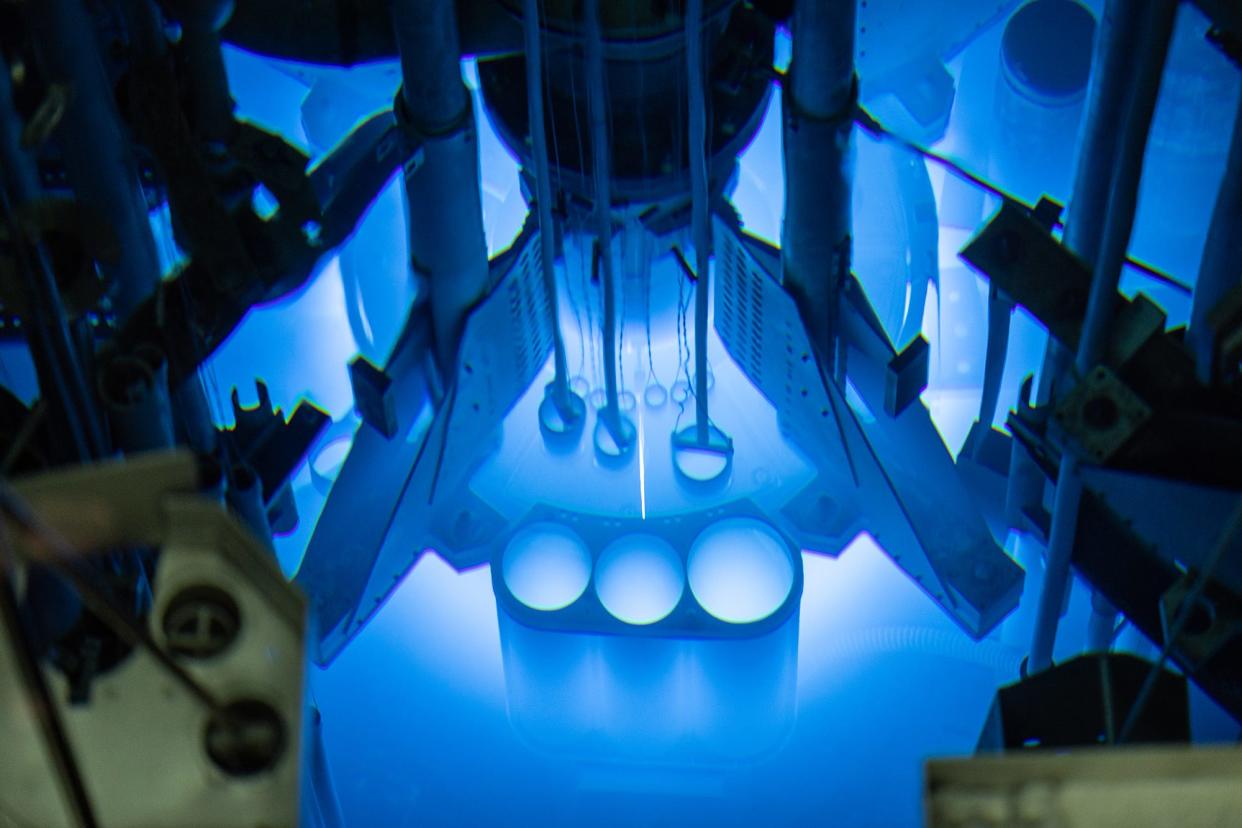University of Missouri to seek proposals next month for new, larger research reactor

The University of Missouri next month will seek proposals for a new and larger research reactor to produce radioisotopes that fight cancer.
The new research reactor will be called NextGen MURR, according to a university news release.
It will supplement and build on the work done by the current MU Research Reactor, built in 1966. It's the highest-powered university research reactor and the only producer in the United States of several critical radioisotopes for treatment of liver, thyroid, pancreatic and prostate cancers and for analysis of heart functions.
The current reactor produces 11,000 doses a week of radioisotopes. The radioisotopes are used to treat more than 500,000 patients a year, officials have said.
MU will seek proposals to solicit interest from qualified parties to provide preliminary designs and industry partnerships. It also will support preparation of regulatory requirements for potential construction at Discovery Ridge in Columbia.
Mun Choi, MU chancellor and system president, announced plans for the project last March as part of his MizzouForward initiative. He said at the time it would be a "massive project" and possibly 10 years away.
MU spokesman Christian Basi on Friday said there's no specific timeline and the project depends on many variables.
A $20 million investment to upgrade the current MU Research Reactor and a $24 million investment from the U.S. Department of Energy in a campus Radioisotope Science Center would come in 2024, Choi said in the 2022 announcement.
University of Missouri System Curators approved the addition in June.
“The work that we do at MURR saves and improves thousands of lives each and every day,” Choi said in a news release. “NextGen MURR will produce advanced cancer medicines for the next 75 years and solidify the University of Missouri’s position as the most important resource for medical isotopes in the United States.”
MURR operates 24 hours a day, 6 1/2 days a week, 52 weeks a year.
The greater capacity of NextGen MURR is needed to secure the domestic supply of radioisotopes, because they decay rapidly, requiring constant production, said Matt Sanford, interim director of MURR.
"The central location of Missouri in the United States will ensure rapid deployment to patients, no matter where they live,” Sanford said. “To ensure continued advancements in the nuclear sciences and the future security of radioisotope supply, we must start the process of building NextGen MURR now.”
Roger McKinney is the Tribune's education reporter. You can reach him at rmckinney@columbiatribune.com or 573-815-1719. He's on Twitter at @rmckinney9.
This article originally appeared on Columbia Daily Tribune: A new, larger MU Research Reactor may benefit future cancer patients

